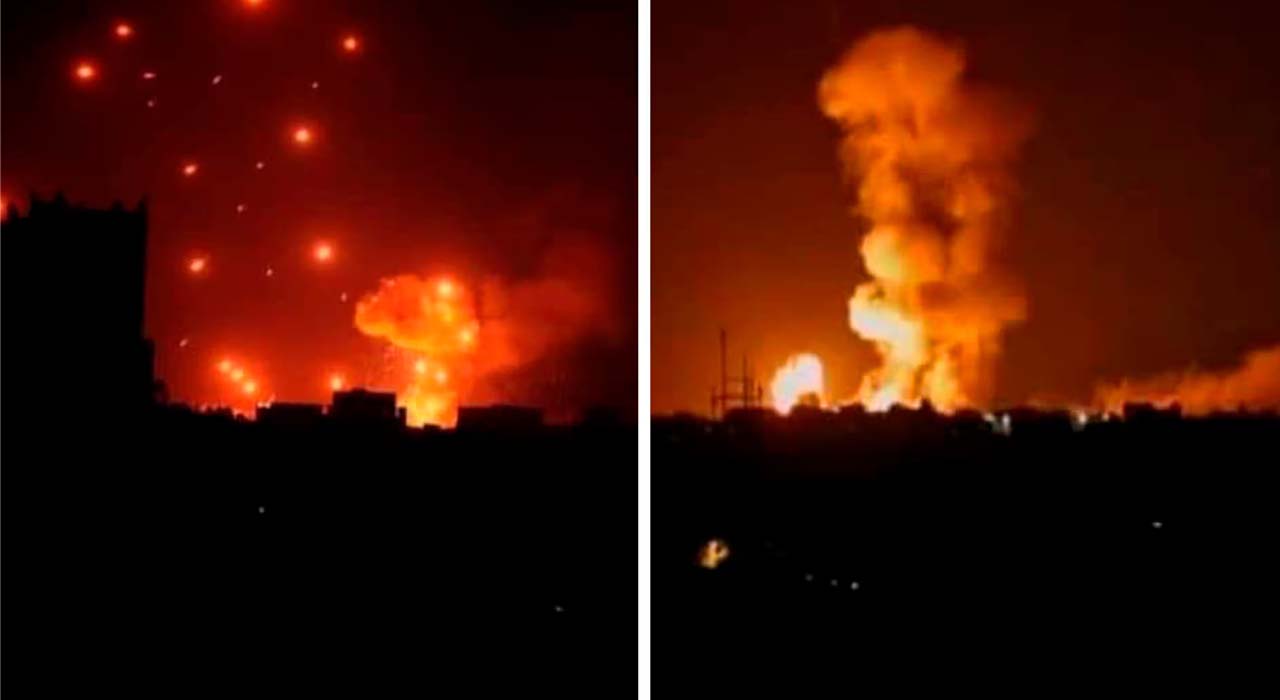U.S. Says Attacks ‘Must Stop Right Now,’ as it Strikes IRGC, Militias in Iraq, Syria
Those strikes marked the most serious U.S. military action undertaken by the Biden administration during its three years in office.

WASHINGTON DC, United States (Kurdistan 24) – U.S. forces struck Iranian-associated targets—the Islamic Revolutionary Guard Corps Quds Force (IRGC-QF) and local militias backed by the IRGC-QF— in Iraq and Syria early on Saturday morning, local time.
Those strikes marked the most serious U.S. military action undertaken by the Biden administration during its three years in office.
The strikes began at 4:00 PM Washington time (midnight in Iraq and Syria) and lasted for just 30 minutes. In that time, U.S. forces hit 85 targets at seven locations—three in Iraq and four in Syria.
The U.S. strikes were undertaken in retaliation for an attack on Sunday which killed three American service members at a base in northeast Jordan.
Significantly, B-1 long-range heavy bombers were involved in the U.S. strikes, in addition to locally-based CENTCOM aircraft. The B-1’s flew to their targets in the Middle East all the way from the U.S., as Lt. Gen. Douglas Sims, Director of the Joint Chiefs of Staff, told reporters on Friday.
The involvement of the B-1’s was very deliberate. The U.S. had planes in the area, and some were used in the strike. But flying the bombers from the U.S. underscored American strength and power—which U.S. President Joe Biden had refrained from employing over the past four months.
Indeed, Sunday’s lethal militia strike topped off a series of such assaults. There had been over 160 attacks since mid-October, when Iran and its proxies began to use the war in Gaza as an excuse to attack troops from the U.S.-led anti-ISIS Coalition based in Iraq and Syria.
Until Friday, the U.S. response to those attacks had been minimal, prompting repeated calls for more effective action.
Read More: Brig. Gen. Audino: Biden Needs to Take ‘Decisive Action’ against Iran
Following the retaliatory strikes, Biden issued a statement in which he affirmed, “Our response” to the attacks “began today,” and “it will continue at times and places of our choosing.”
That statement was repeatedly echoed by John Kirby, National Security Council Coordinator for Strategic Communications, who briefed reporters, alongside Sims, later that day.
Kirby also provided the strongest expression of any Biden administration official in explaining the administration’s objective in the retaliatory strikes that had just occurred.
“We want the attacks to stop,” Kirby said. “We want them to stop right now.”
Details of U.S. Strikes
As CENTCOM explained in a written statement, it had “conducted airstrikes in Iraq and Syria against Iran’s Islamic Revolutionary Guards Corps (IRGC) Quds Force and affiliated militia groups.”
“More than 85 targets” were struck, it said, “with numerous aircraft to include long-range bombers flown from the United States,” using “more than 125 precision munitions.”
“The facilities that were struck included command and control operations centers, intelligence centers, rockets, missiles, unmanned aerial vehicle storage and logistics and munition supply chain facilities of militia groups and their IRGC sponsors who facilitated attacks against U.S. and Coalition forces,” the statement continued.
Critics suggested that the origin of the current crisis lay in the administration’s misunderstanding of Iran, going back to when it took office.
As the highly-regarded academic, Walter Russell Mead, wrote in Monday’s Wall Street Journal, “The [Middle East] region is on fire today, because the U.S. bid for detente with Iran has utterly failed.”Somewhat similarly, the editors of The Washington Post wrote on Tuesday, advising the administration “to use this moment for some stocktaking about recent U.S. deterrence of the [militia] groups’ ultimate backer, Iran,” as the Post advocated doing pretty much what the administration did do on Friday.
No Coordination with Iran
“We saw the Iranians send a few signals” that they, like the U.S., “didn’t want a direct conflict,” a New York Times reporter observed in Friday’s press briefing, before he asked if there had been any back channel communications with Iran to prevent a widening of the conflict.
“No,” John Kirby replied. “There’s been no communications with Iran, since the attack that killed our three soldiers in Jordan.”
Will This Suffice?
Behnam ben Taleblu, a Senior Fellow at the Foundation for Defense of Democracies, advised Kurdistan 24 that “in an attempt to calibrate its military response,” the administration had avoided striking targets in Iran, while limiting itself to “militia and IRGC targets” outside of the country.
“Time will tell, if the patron of those groups in Tehran will get the message,” he continued. “This is not a call to needlessly expand a conflict, but the administration may well have to strike at what the Iranian regime holds dear, and often, to restore deterrence.”
Biden did say that the U.S. response “will continue,” and Kirby repeated that several times, when he briefed reporters later that day.
Indeed, as noted above, Kirby provided the strongest expression of any U.S. official regarding the administration’s objective: “We want the attacks to stop. We want them to stop right now.”
Thus, it seems, much will depend on the administration’s readiness to back its tough words with tough actions, should that prove necessary.